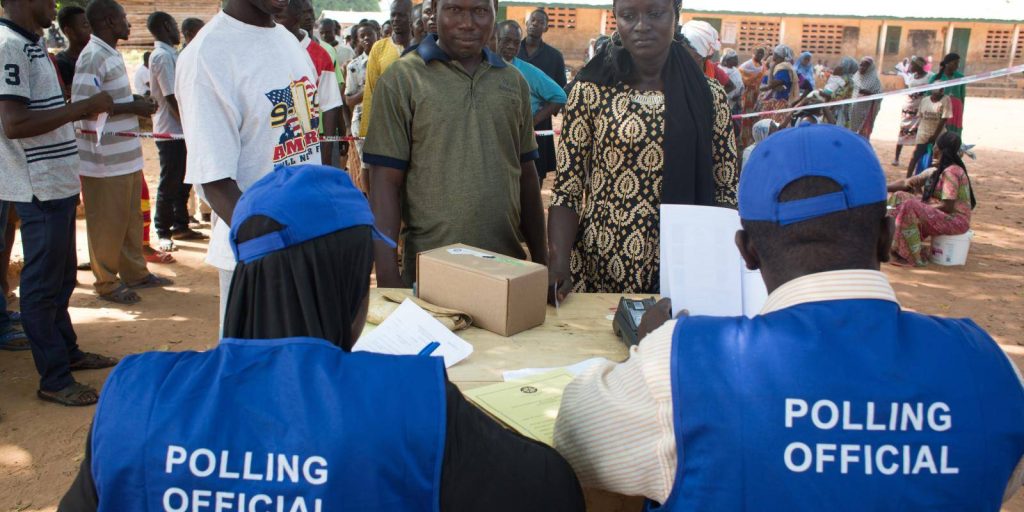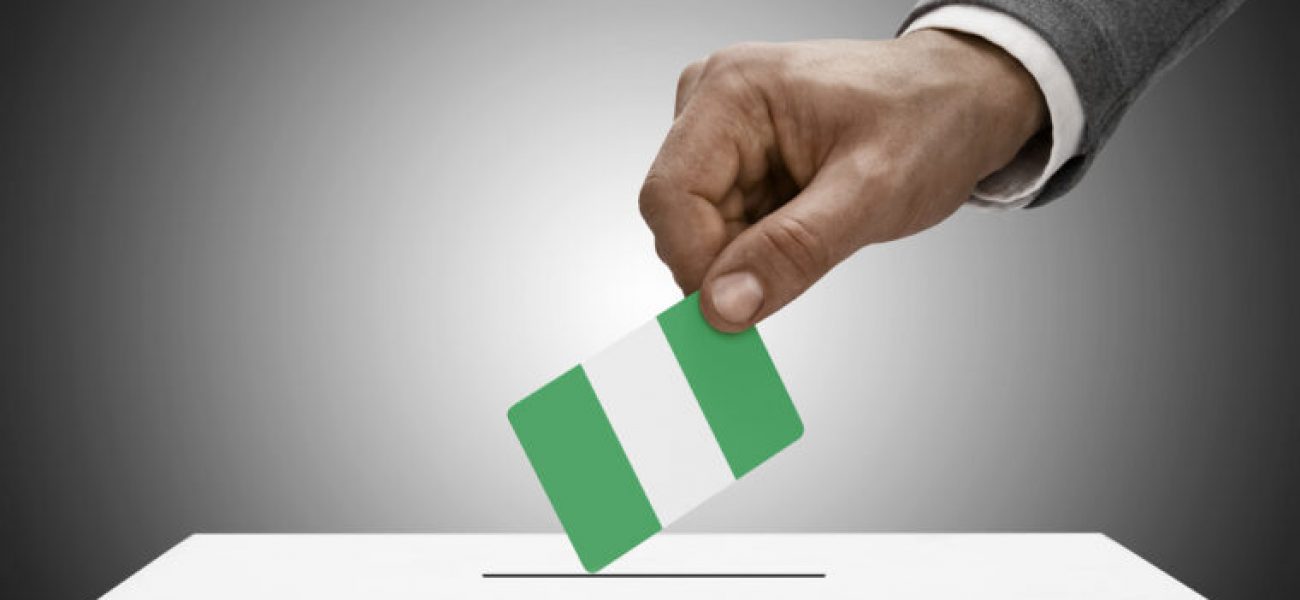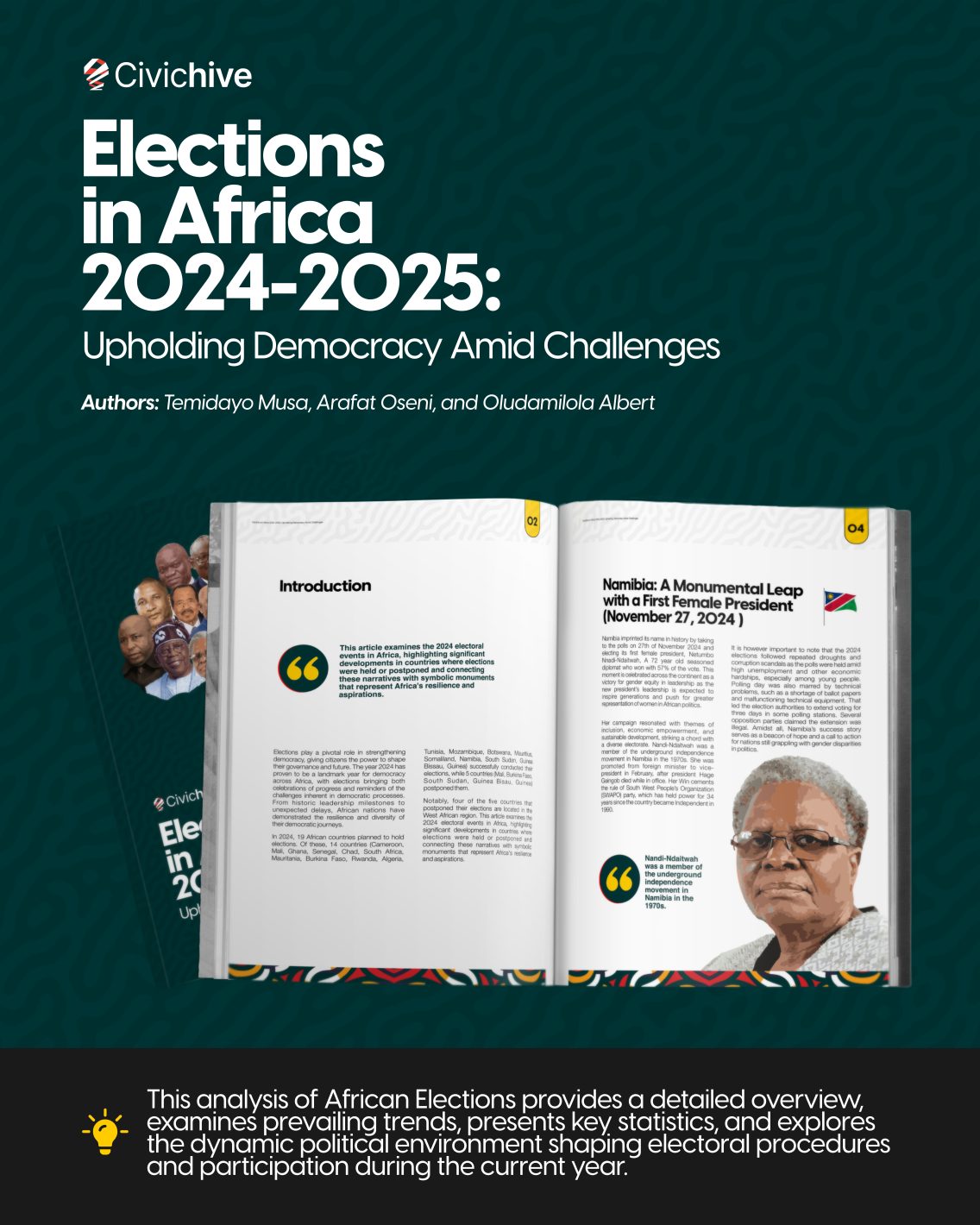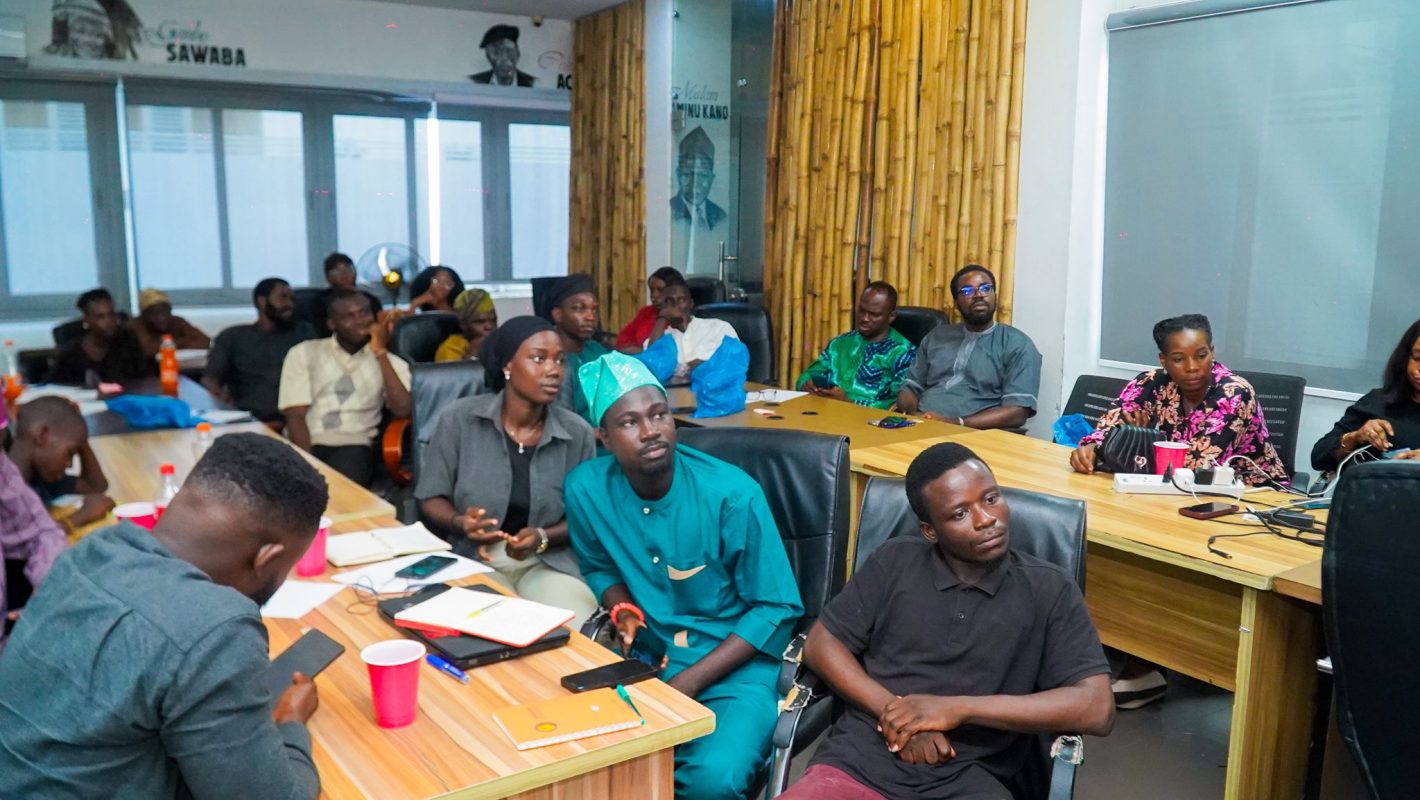Ghana, a country in West Africa, with over 32 million inhabitants, is the second-most populous country in West Africa.
Ghana has long been hailed as one of Africa’s most stable democracies. Since the transition to multi-party democracy in 1992, the country has enjoyed peaceful elections and smooth democratic transfers of power. However, the upcoming 2024 election will serve as another critical test for this reputation.
Ghana uses a unilateral presidential constitution with a parliamentary multi-party system that is currently dominated by two parties—the National Democratic Congress (NDC), and the New Patriotic Party (NPP). General elections will be held in Ghana on 7 December 2024 to elect the president and members of parliament.
The President of Ghana is elected using the two-round system, whilst the 275 members of Parliament are elected in single-member constituencies using first-past-the-post voting. The Incumbent President Nana Akufo-Addo is term-limited and thus ineligible to run again.
- Key Candidates
The Ghana electoral commission confirmed 13 presidential candidates for the 2024 election, with the New Patriotic Party (NPP) currently led by President Nana Akufo-Addo, facing off against the opposition National Democratic Congress (NDC).
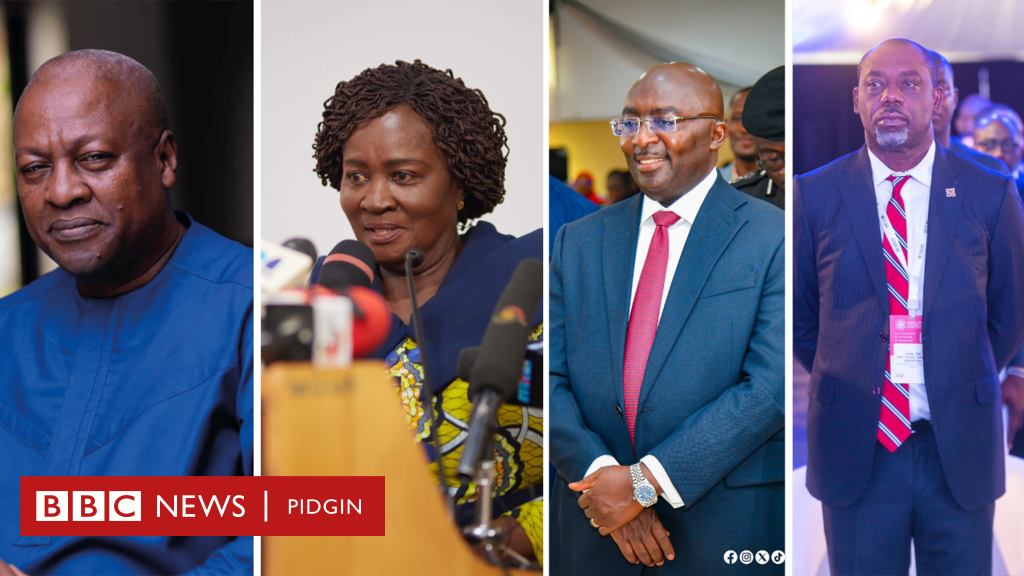
However, since President Akufo-Addo is completing his second and final term, the NPP will need to find a new candidate. The Vice President Dr. Mahamudu Bawumia, has emerged as the candidate. He was the former Deputy Governor of Ghana’s Central Bank. As the first Muslim to lead the southern-dominated NPP, Bawumia presents himself as a bridge-builder across Ghana’s diverse electorate.
On the other hand, the NDC Presidential contender is former President John Dramani Mahama, Ghana’s president from 2012 to 2017. He lost the highly competitive elections to Akufo-Addo in 2016 and 2020 and solidified his democratic credentials by graciously accepting his defeat as the incumbent in 2016 and facilitating the smooth transfer of power.
The ruling New Patriotic Party had its primary in 2023 and the country’s Vice President Bawumia placed first, with 68% of the vote. The opposition National Democratic Congress also opened its nomination period on 22 February 2023 giving women and disabled candidates who were eligible 50% discount of the nomination fee, but none applied before they closed nomination.
- Issues at Stake
Ghana’s economy, like many others, was hit hard by the COVID-19 pandemic, leading to increased inflation and a rising cost of living. The country’s debt crisis and its engagement with the International Monetary Fund (IMF) for economic recovery will play a major role in the election.
The electorate will be closely watching how each party plans to address unemployment, inflation, and income inequality. Also, Youth unemployment remains one of the critical issues in Ghana, with a large percentage of the population under the age of 30. This demographic is expected to significantly influence the election outcomes as they push for jobs, education, and entrepreneurial opportunities.
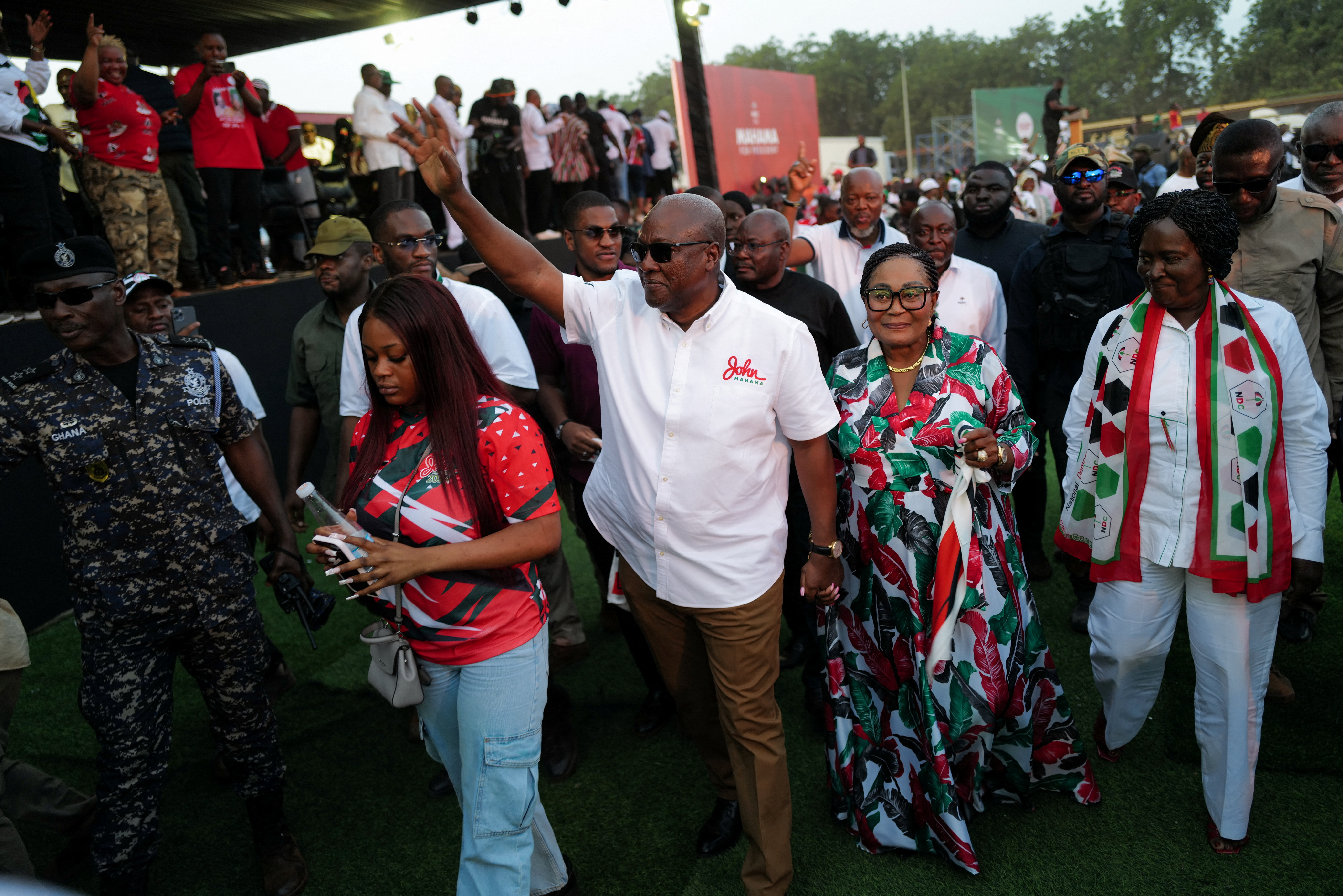
Ultimately, Corruption scandals in both the public and private sectors have become central to political discourse. Citizens are increasingly demanding accountability, transparency, and better governance structures to reduce the misuse of public resources.
Lastly, with the success of the Free Senior High School policy, and issues like overcrowding and underfunding, education is likely to remain a key topic of discussion. The health sector and infrastructure development, particularly in the post COVID-19 era, is also a critical area where parties will focus on improving accessibility and infrastructure.
- Election Atmosphere and Challenges
While Ghana has a stable democratic system, election periods in West Africa can often bring heightened political tensions. The 2024 elections will require careful management of security forces to ensure peace before, during, and after the polls.
The Electoral Commission of Ghana (ECG) and security agencies will be under pressure to ensure a transparent and violence-free election. Thus, with the growing influence of social media, misinformation and disinformation could pose a bigger challenge during the election season. Political actors may take advantage of online platforms to spread propaganda or fake news, making it difficult for voters to discern fact from fiction.
- What to Expect
Just like many previous elections, the 2024 general elections are expected to be highly competitive between the NPP and NDC. With no clear frontrunner at this point, the election could swing either way, depending on campaign dynamics in the final months and voter turnout dynamics.
It is also expected that Candidates would deploy issue-based campaigns where Economic issues, particularly inflation and youth unemployment, will likely dominate the campaigns with both parties trying to appeal to voters by offering tangible solutions to Ghana’s economic challenges.
The role of technology in elections is growing, and Ghana’s 2024 elections will be no exception. From voter registration to the tallying of results, technology will play a role in ensuring efficiency and transparency. However, ensuring that these systems are secure from cyber threats will be essential.
A significant portion of the voting population is expected to be the youth, as their participation will be crucial in determining the election outcome. However, higher voter turnout among the young demographics will also play a huge role.
It is also worrisome to know that Ghanaian Journalists have become targets of political actors and security operatives ahead of 2024 elections as there were a total of 45 documented cases of attacks against journalists and media institutions from 2019 to 2023. The police are yet to make any arrests linked to the crime or conclude on the cases involving attacks on journalists according to the Ghana Journalists Association (GJA).
Conclusion
Ghana’s 2024 general elections is a critical moment in the nation’s democratic journey towards wholesome development, security and infrastructure.
With high stakes, especially regarding the economy and youth unemployment, voters will be looking for leadership that can navigate the country through these challenges.
As the political campaigns intensify, the hope is that Ghana will once again demonstrate the resilience of its democracy through peaceful and credible elections. Whether you are a Ghanaian voter, an observer, or simply interested in African politics, the 2024 general elections will be worth watching closely.
You can follow BudgIT Ghana for more information on activities and updates.
References:
https://africacenter.org/spotlight/2024-elections/#ghana
